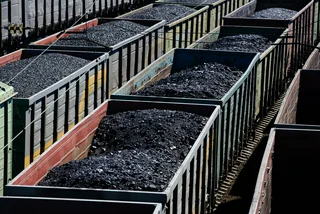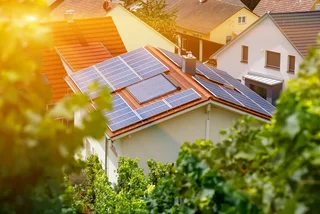The Czech Republic is moving forward with its plan to add more nuclear energy. State-controlled energy group ČEZ has launched a tender to find a company to build a new reactor unit at the Dukovany nuclear power plant, one of two reactor sites currently in operation.
Finding a supplier for the reactor is just the first step in a long process. The contract should be signed in 2024, then construction is expected to begin in 2029. The new block should start generating electricity in 2036. It will be the first new reactor unit in the Czech Republic since 2002.
Industry and Trade Minister Jozef Síkela said the new reactor will be the biggest investment in modern Czech history. It will cost roughly CZK 160 billion based on prices from 2020, according to representatives of the government and ČEZ. The exact price won’t be known until the winning bid is selected.
Increasing the amount of nuclear energy in the Czech Republic would reduce the reliance on imported oil and gas. Reliance on coal, which is available in the Czech Republic, is being reduced for environmental reasons.

“We want to take another step toward making the Czech Republic self-sufficient in energy and toward developing our energy policy in a good and correct direction,” Prime Minister Petr Fiala said.
Companies that might pose a potential security risk have been excluded from the process. Fiala said these include “for example Putin’s Russia.” A law signed by President Miloš Zeman in September 2021 blocked both Russia and China from future participation in nuclear projects.
Initial bids will come by the end of November from three companies that have passed a safety assessment: French energy group Électricité de France (EDF), U.S.-based Westinghouse Electric Company, and South Korea’s Korea Hydro & Nuclear Power (KHNP). The government will continue to check whether any bidders or their subcontractors pose any risk.
Once these bids are received ČEZ will negotiate details with the companies, who will then submit revised bids. In December 2023, ČEZ should give the government a final assessment of the bids, according to ČEZ director general Daniel Beneš.
“The main objective is a safe and economical project completed within the stipulated budget and time. For the tender itself, the goal is of course to select the best contractor and to have a quality and beneficial contract. … I believe that the 2036 start date for test operation of the new unit is achievable,” Beneš said.
Síkela said not only the price of the bid but also the highest possible involvement of Czech science and Czech firms will decide on the winner. Czech firms’ participation in the reactor construction could reach up to 65 percent, he added.
The new Dukovany unit will be built next to the existing power plant and will replace part of the current power plant’s output in the future.
Expanding Dukovany was first proposed in 2012, but faced numerous setbacks and delays due to lack of support by the governments of the time.
2/2 Jsme rádi, že Äeská vláda si to plnÄ› uvÄ›domuje a vÃtáme jejà rozhodnutà otevÅ™Ãt tendr na dostavbu Dukovan. Jsme pÅ™ipraveni se výbÄ›rového Å™Ãzenà s naÅ¡Ã bezpeÄnou a Å¡piÄkovou technologià zúÄastnit. #jádrovÄŒR #tendrDukovany
— Westinghouse ÄŒesko (@WECNuclearCZ) March 17, 2022
Westinghouse welcomed the Czech government’s decision on the tender. “We are ready to take part in the competitive tendering with our safe and first-rate technology,” the Czech branch of the company said on Twitter.
The two nuclear power plants account for 34 percent of all electricity generated in the Czech Republic. ČEZ said that a regular public opinion poll conducted by polling firm IBRS at the end of last year showed that 65 percent of respondents were in favor of the further development of nuclear power in the Czech Republic, compared to 62 percent in the previous year.
The Czech Republic has two nuclear power plants with a total of six units. Temelín in South Bohemia has two units with a capacity of 1,000 MW each. Dukovany has four 510 MW units. Temelín went into operation in 2002 and Dukovany’s first unit was commissioned in 1985.












 Reading time: 3 minutes
Reading time: 3 minutes 


























